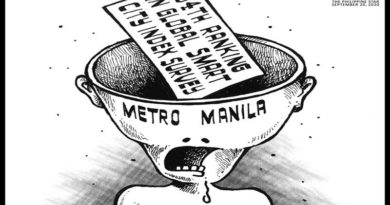ASEANEWS HEADLINE: BRUNEI – Strike the right balance in nurturing tech innovation
FINANCIAL regulators must revolutionise approaches to move in tandem with the rapidly evolving financial technology environment, said Minister of Home Affairs Pehin Orang Kaya Seri Kerna Dato Seri Setia (Dr) Haji Awang Abu Bakar bin Haji Apong.
“It is a tough time for regulators as they must strike the right balance in nurturing and cultivating innovation, while preserving financial stability and ensuring consumers’ best interests are safeguarded,” the minister, who is also the Deputy Chairman of Autoriti Monetari Brunei Darussalam (AMBD) Board of Directors, noted in his keynote address during the opening of the 13th Annual Brunei Darussalam Roundtable themed ‘Capital Markets, Finance and Investments: Global Trends and How Technology is Driving Growth’, organised by Asia Asset Management magazine with the support of the Brunei Darussalam Capital Market Association (BCMA) at The Empire Hotel & Country Club yesterday.
Continuous efforts are being undertaken by regulators to maintain oversight in the cryptocurrency space, while implementing measures to mitigate and address any risk that may rise from such new innovation.
The minister highlighted that AMBD has undertaken measures to address harms associated with technological advancements including cybersecurity risks.
“In October 2017, AMBD issued a Notice on Early Detection of Cyber Intrusion and Incident Reporting. This notice aims to ensure that financial institutions are proactive in detecting cyber intrusions to enable a quick response and recovery.
“In addition, AMBD has been actively raising public understanding of new and innovative financial instruments, including the risks associated with them. I urge our fellow industry players to also play their part in continuously ensuring that financial education is sufficiently provided.
“Despite the challenges posed by rapidly evolving technology, it does hold the potential to improve the overall quality of life and to drive growth. As regulators and industry players, we need to constantly keep ourselves abreast of developments in order to harness the innovative power of technology while addressing financial stability concerns.”
Quoting Christian Lou Lange, the joint 1921 Nobel Peace Prize laureate, the minister said, “Technology is a useful servant but a dangerous master.”

.
.
Addressing more than 140 delegates from across Asia, the minister said the roundtable calls to attention an uprising issue that has been termed as the driver of the Fourth Industrial Revolution – technology.
“The First Industrial Revolution in the 18th and 19th centuries transformed agricultural societies to industrial societies. The Second Industrial Revolution in the early 1900s brought mechanised mass production. The Third Industrial Revolution in the 1980s turned our world digital.
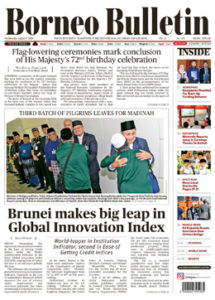
“The Fourth Industrial Revolution has somewhat blurred the physical, digital and biological domains with technology becoming more embedded in our daily lives. It has been evolving at such high speed, affecting nearly every sector and has fundamentally changed our lives. The rise of artificial intelligence and automation has changed the game of the labour market,” he said.
“The fundamental nature of work is also called into question with the rise of gig economy (a labour market characterised by the prevalence of short-term contracts or freelance work as opposed to permanent jobs). The services industry such as restaurants and hotels are being transformed by machines and digital technology with a shift from the long norm of person-to-person interaction to machine-to-person. Overall, this benefits consumers with better quality, efficiency and cheaper goods and services,” the minister added.
“The finance sector is not immune to this revolution with the current rise of financial technology (FinTech). Financial technology has been around for decades. The financial sector has evolved over time with ATMs, computers and digital payment systems. But similar to other sectors in the Fourth Industrial Revolution, the pace of change is moving rapidly.
“Furthermore, the advancement in technology has sparked the emergence of blockchain (a digital ledger in which transactions made in bitcoin or another cryptocurrencies is recorded chronologically and publicly). In the financial industry, we see blockchain technology being applied to payments and transactions to lower costs to consumers and users. The speed of transactions is almost instantaneous. Blockchain is relatively new with its own uniqueness, and technical expertise in the area is rare and may require investments into human capital. Human creativity and original thinking is indeed a valuable resource and limitless, something that we can leverage on creatively to leapfrog advanced markets through technological innovations. I believe there is such a possibility,” the minister said.
“We are at the point of a reimagining finance, and in Brunei’s context, what can the financial market players learn from these technological developments? It is noted that there are pressing financing needs for the development of small and medium enterprises (SMEs) where technology can play an active role in providing innovative solutions. This can be facilitated by, among others, crowdfunding platforms that have been recognised as a means to bridge the financing gaps in many countries.
“Towards this, AMBD has introduced a regulatory framework to facilitate raising of funds through equity-based crowdfunding in August 2017. This will provide SMEs and promising start-ups access to alternative sources of financing.
“It is hoped that this will further develop the domestic capital market industry. This in turn will create greater spillover effects towards the economy as well as significantly contribute to the national economic diversification efforts,” he added.
Meanwhile, touching on risks brought by this technological advancement in the financial sector, the minister said that it is undeniable that new technologies, in addition to the opportunities they offer, come with their own quantum of risks. In the case of blockchain, it gave rise to cryptocurrency.
While the legitimate use of cryptocurrencies offer several benefits such as increased payment efficiency and lower transaction costs, we must remain vigilant of their risks.
As cryptocurrencies are generally not backed by tangible assets and remain unregulated in many jurisdictions, consumers must be vigilant and exercise extreme caution when dealing with them and understand the risks associated with them.
“The anonymous characteristics of cryptocurrencies and their global reach present potential money laundering and terrorist financing risks.
“Furthermore, cryptocurrency exchanges have been known to be susceptible to attacks by hackers and this
July 31, 2018| Azaraimy HH |
ASEANEWS FRONT PAGES:



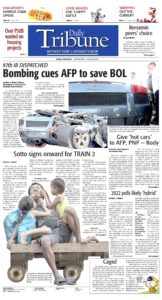



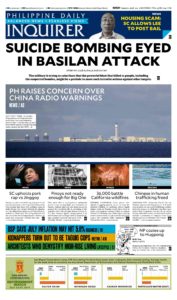

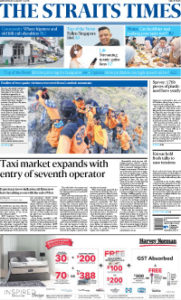
 All photographs, news, editorials, opinions, information, data, others have been taken from the Internet..aseanews.net | [email protected] / For comments, Email to : Aseanews.Net | [email protected] | Contributor
All photographs, news, editorials, opinions, information, data, others have been taken from the Internet..aseanews.net | [email protected] / For comments, Email to : Aseanews.Net | [email protected] | Contributor








